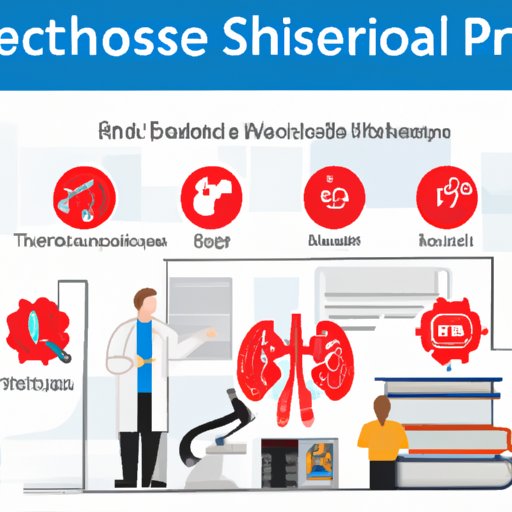Exploring Pre Health Science: An Overview
Pre health science is a field of study that focuses on preparing students for a career in the healthcare industry. It includes courses in anatomy, physiology, biochemistry, human biology, and clinical skills. It also includes a variety of other topics, such as research methods, medical terminology, and ethics in healthcare. Pre health science programs provide students with the knowledge and skills needed to pursue a career in the healthcare industry.

Understanding the Basics of Pre Health Science
The basics of pre health science include courses in anatomy and physiology, biochemistry, and human biology. Anatomy and physiology courses focus on the structure and function of the human body. Students learn about the different systems of the body, including the nervous, digestive, respiratory, and circulatory systems. They also learn about the organs and tissues that make up each system and how they work together to maintain homeostasis. Biochemistry courses cover the chemical processes that occur in living organisms, such as metabolism and enzyme activity. Human biology courses focus on the study of the human species, including genetics, evolutionary history, and population dynamics.
In addition to these fundamental courses, pre health science programs often include courses in clinical skills, such as patient assessment, diagnosis, and pharmacology. These courses provide students with the practical skills needed to practice medicine. They also teach students how to communicate effectively with patients and understand the ethical implications of healthcare decisions.
Pre Health Science: A Guide to Choosing Your Path
When it comes to choosing a pre health science program, there are several factors to consider. First, research different schools and programs to find one that best meets your needs. Consider the cost of tuition, the length of the program, and the type of degree offered. Also, make sure to understand the degree requirements for the program you choose. Most pre health science programs require students to complete a certain number of credit hours or courses in order to graduate.
Once you have narrowed down your choices, it is important to find the right fit for you. Talk to current and former students to get an idea of their experience with the program. Ask questions about the curriculum, the faculty, and the resources available. This will help you determine if the program is a good match for your goals and interests.

Benefits of Pursuing a Pre Health Science Degree
There are many benefits to pursuing a pre health science degree. One of the most obvious is the potential for career opportunities. With a pre health science degree, you can pursue a variety of careers in the healthcare industry, such as nursing, physician assistant, physical therapy, or medical laboratory technician. In addition, having a degree in pre health science can open doors to higher-level jobs, such as becoming a doctor, nurse practitioner, or researcher.
A pre health science degree also provides students with increased knowledge of the human body and healthcare systems. Understanding the fundamentals of anatomy and physiology, biochemistry, and human biology can be invaluable when it comes to diagnosing and treating patients. Finally, pre health science programs provide hands-on experience in the form of clinical rotations, which allow students to gain valuable insight into the healthcare profession.
Preparing for a Career in Pre Health Science
In addition to completing a pre health science program, there are other steps you can take to prepare for a career in the healthcare industry. Developing marketable skills, such as communication, leadership, and problem-solving, can make you more attractive to potential employers. Additionally, taking advantage of internships or volunteer opportunities can give you valuable experience and enhance your resume.
Finally, networking with professionals in the healthcare field can be beneficial. Attend job fairs, conferences, and seminars to meet people who can help you find a job or provide advice on your career path. Building relationships with healthcare professionals can help you learn more about the industry and stay up-to-date on trends and developments.

Current Trends in Pre Health Science Education
The field of pre health science is evolving, and new trends are emerging. Online learning has become increasingly popular, allowing students to complete coursework from the comfort of their own homes. Interdisciplinary education is also becoming more common, with students taking courses in multiple disciplines in order to gain a more holistic understanding of the healthcare field. Finally, there is an increasing emphasis on technology, with students using virtual reality and other cutting-edge tools to learn and practice medical procedures.
Pre health science is a growing field, and it offers numerous opportunities for those interested in a career in the healthcare industry. By understanding the basics of pre health science, researching different schools and programs, and preparing for a career in the field, students can find the right fit for them and reap the rewards of a successful career in healthcare.
Conclusion
Pre health science is a broad field that combines courses in anatomy, physiology, biochemistry, and human biology with clinical skills and other topics. With a pre health science degree, students can pursue a variety of careers in the healthcare industry and gain valuable knowledge and experience. When choosing a pre health science program, students should consider factors such as cost, length, and degree requirements. Additionally, students should develop marketable skills, enhance their resumes, and network with professionals in the field. Current trends in pre health science education emphasize online learning, interdisciplinary education, and the use of technology. By understanding pre health science and preparing for a career in the field, students can find success in the healthcare industry.
(Note: Is this article not meeting your expectations? Do you have knowledge or insights to share? Unlock new opportunities and expand your reach by joining our authors team. Click Registration to join us and share your expertise with our readers.)
